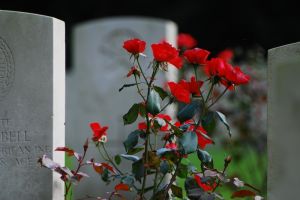 I have railed at length in this blog against a Florida law that allows medical providers alone to avoid the same legal liability everyone else faces for causing the negligent loss of life. The offensive statute is section 768.21(8), Florida Statutes, which is part of Florida’s Wrongful Death Act.
I have railed at length in this blog against a Florida law that allows medical providers alone to avoid the same legal liability everyone else faces for causing the negligent loss of life. The offensive statute is section 768.21(8), Florida Statutes, which is part of Florida’s Wrongful Death Act.
Section 768.21, entitled “Damages,” describes who is entitled to what in wrongful death cases. Subparts (3) and (4) provide as follows:
(3) Minor children of the decedent, and all children of the decedent if there is no surviving spouse, may also recover for lost parental companionship, instruction, and guidance and for mental pain and suffering from the date of injury. For the purposes of this subsection, if both spouses die within 30 days of one another as a result of the same wrongful act or series of acts arising out of the same incident, each spouse is considered to have been predeceased by the other.(4) Each parent of a deceased minor child may also recover for mental pain and suffering from the date of injury. Each parent of an adult child may also recover for mental pain and suffering if there are no other survivors.
Where the wrongful death resulted from medical malpractice, subpart (8) bars the recovery of “lost parental companionship, instruction, and guidance and for mental pain and suffering” of “all children of the decedent if there is no surviving spouse.” as otherwise allowed in subpart (3), and “mental pain and suffering” for “[e]ach parent of an adult child … if there are not other survivors” as otherwise allowed in subpart (4). Subpart (8) provides as follows:
(8) The damages specified in subsection (3) shall not be recoverable by adult children and the damages specified in subsection (4) shall not be recoverable by parents of an adult child with respect to claims for medical negligence as defined by s. 766.106(1).
(For purposes of this statute, an adult child is a child over the age of 25)
This simple paragraph has caused heartache upon heartache to a countless number of parents and children whose loved ones died from medical malpractice. Every week our office receives phone calls from disbelieving adult children and parents seeking a magical solution that doesn’t exist. Often, we are their fourth and fifth call. Sadly, the best we can offer are condolences and the suggestion they complain to Florida’s Governor and its state legislators. Not very comforting words.
 Florida Injury Attorney Blawg
Florida Injury Attorney Blawg





